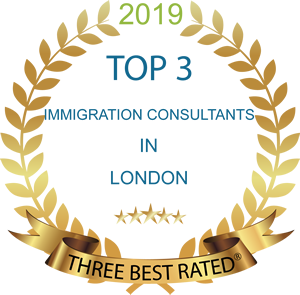Tier 1 (Entrepreneur) Visa
This category of visa is for non-European migrants who want to invest in the UK by setting up or taking over, and being actively involved in the running of, a business or businesses in the UK. In order to qualify under this category, applicants need to score a minimum of 75 points for attributes including availability of funds, where the funds are held and disposability of the funds.
In addition to these attributes, they also need to score 10 points each for the English language and for the maintenance (funds).
Applicants under the Tier 1 (Entrepreneur) Visa should have access of the following funds for investment in the UK:-
- Access to not less than £200,000; or
-
Access to not less than £50,000 from:
- One One or more registered venture capital firms regulated by the Financial Services Authority; or one or more UK entrepreneurial seed funding competitions listed on the UK Trade and Investment; or one or more UK government departments or devolved government departments in Scotland, Wales or Northern Ireland; or
- Access to not less than £50,000 and who have, or were last granted, leave as a Tier 1 (Graduate entrepreneur) migrant.
-
Access to not less than £50,000 and who have, or were last granted, leave as a Tier 1 (Post-study work) migrant and
- Were registered with HM revenue and Customs as self-employed, or a registered director of a new or existing business and have been continuously working in an occupation equivalent to National Qualifications Framework (NQF) level 4 or above prior to 11th July 2014
-
Access to not less than £200,000 or £50,000 from a registered venture capital firms regulated by the Financial Services Authority and who have, or were last granted, leave as a Tier 1 (General) Migrant and
- egistered with HM revenue and Customs as self-employed, or a registered director of a new or existing business and have been continuously working in an occupation equivalent to National Qualifications Framework (NQF) level 4 or above prior to 6th April 2015
Visa Entitlements
Successful applicants under Tier 1 (Entrepreneur) Visa are issued for an initial maximum period of three (3) years and four month (if applying from overseas) or three (3) years (if applying within the UK). They will have free access to public schools, and National Health Service. Eligible dependants may also be able to work or study without any restrictions.
Upon successfully holding a Tier 1 (Entrepreneur) Visa fora total of three (3) years (if applicants have created 10 jobs for the resident workers and have turnover of £5 million) or five (5) years, applicants may be entitled to apply for Indefinite Leave to Remain (ILR).
FAQ
-
How many days am I allowed to stay outside UK to apply for ILR?v
-
In order to meet the continuous residency requirement, applicant should not be outside UK for more than 180 whole days in any of the five consecutive 12 month periods, preceding the date of the application for Indefinite Leave to Remain (ILR). The specified continuous period is counted backwards from the date of the ILR application.
For example, if the date of application is 1st December 2013, the 12 months period would start from 1st December 2013 to 31st December 2012 and every consecutive year counting backwards.
-
-
Rights of Dependantsv
-
Dependants (including children under 18 years of age or husband, wife, civil partner, unmarried partner or same-sex partner) will be eligible to live and stay in the UK with the main applicant. They can live and work in the UK without any restrictions. They will be granted leave in line with the expiry date of the PBS migrant’s (or main applicant’s) leave.
Dependants will have the following conditions attached to their leave:
- No recourse to public funds;
- Registration with the police, if applicable;
- No Employment as a Doctor or Dentist in Training
-
-
When do I need to invest the funds?v
-
Applicants must show that either the full amount of £200,000, or of £50,000, in cash has been invested in business in the UK. In cases where the applicant have moved on to other activities and no longer be involved in the business in which they initially invested, but we still they require this evidence to show that the money was invested.
-
-
Where can I invest the money?v
-
As a guidance, an applicants can invest the money into Direct cash investment to be used by the business; or Share capital; or Director’s loan as long as it is unsecured and subordinated in favour of third-party creditors; or Unsecured loan or Third-party creditors.
-
-
Can I invest in a property?v
-
Under the Tier 1 (Entrepreneur) visa, applicant cannot invest in property development and property management. If an applicant has bought property for their business which includes residential accommodation, the Home Office will not accept the value of this part of the property as investment in the business.
-
-
What is the requirement of job creations?v
-
Applicants who have established new businesses, those businesses must have, between them, created the equivalent of two extra full-time (30-hour working week) paid jobs for at least two people who are settled in the UK and those jobs must have existed for at least 12 months each.
-
-
What is the Graduate Role Requirement?v
-
Applicants who are currently on Tier 1 (Post-Study) Work visa must show that they have been working in an occupation which appears on the list of occupations skilled to National Qualifications Framework level 4 or above, as stated in the Codes of Practice on our website. It excludes any work involved in administration, marketing or website functions for the business.
-
-
What should I do once I have been granted a visa?v
-
Applicants will be expected to meet the following requirements when they apply for an extension:
- Requirement one - Invest their funds in business in the United Kingdom. The investment will not include the value of any residential accommodation, property development or property management;
- Requirement two – They must either register as a director of a UK company or register as self employed with the UK tax authorities within six months of arriving in the UK;
- Requirement three – At the end of three years and four months they must either be acting as a director, or be self-employed.
- Requirement four – They must have created the equivalent of two year-long, full-time jobs for people who are settled in the United Kingdom.
-
-
Conditions of Stayv
-
Applicants will have the following conditions attached to their leave:
- No recourse to public funds;
- Registration with the police, if applicable;
- No employment other than working for the business or businesses that you have established, joined or taken over; and
- No employment as a professional sportsperson (including as a sports coach).
-
-
What is my immigration status while my application is pending?v
-
If applicants submit their application before their authorised stay ends, their existing immigration status will continue until their application is decided, even if the decision is not made until after the end of their permitted stay. Applicant can continue to work until their case is decided if the conditions of their existing leave allow them to do so.
-
-
Biometric Requirementv
-
Foreign nationals from outside the European Economic Area making certain applications to the Home Office have to apply for a biometric residence permit. This applies to both postal applications and applications made in person (known as ‘premium applications’). The biometric residence permit is a residence permit which holds a migrant’s biographic details (name, date and place of birth) and biometric information (facial image and fingerprints), and shows their immigration status and entitlements while they remain in the UK. This also means that a UK visa will no longer be stamped in applicant’s passport and all applicants will be issued one of the new Biometric visa cards instead. These cards look very similar to a (pink) UK driving license except they have a microchip on the back.
Applicants who wish to extend their stay in the UK by post, the Home Office will send them a letter asking them to enrol their biometrics after the Home Office have received their application. Applicants will be able to enrol their biometric information one of the Post Offices offering this service across the UK using their walk-in service.
Applicants who are submitting their application in person can do this at one of the Public Enquiry Offices by using the premium service. Applicants will enrol applicants’ biometric information at the same time as making their application.
For application submitted overseas, the applicants have to provide their biometric enrolment at one of the Visa Facilitation Centres. Successful applicants will receive a 30 day ‘vignette sticker’ in their passport instead of a vignette with the full grant of leave. This 30 day visa will be the date they indicated as their intended travel date in their visa application. Applicants will be required to collect their BRP from the Post Office branch detailed in their decision letter within ten days of arrival in the UK. The Post Office branch is linked to the postcode that they submitted in their visa application. The BRP card can then be used as proof of right to work, study and access public services in the UK.
-
-
Immigration Health Surchargev
-
The Immigration Health Surcharge (IHS) was introduced by the Home Office on 6th April 2015. People (non-EEA) coming to the UK for more than six months have to pay this health surcharge as a part of their immigration application towards the National Health Service (healthcare in the UK).
Offshore applicants will have to pay the health surcharge if they are applying for a visa for a period of longer than six months, and onshore applicant will have to pay the health charge for any length of visa.Applicants will have to pay £150 per year as a student or £200 per year for all other visa and immigration applications. Dependants will usually need to pay the same amount as the main applicant. The exact amount they have to pay depends on how much leave they are granted. They can calculate how much they will have to pay before you apply. If the period of grant applied for is less than 6 months, then half of the yearly amount to be paid and if the period of grant applied for is more than 6 months, then whole year amount is to be paid.
Visa application will not be granted if applicants do not pay the healthcare surcharge or application will be delayed if the right amount is not paid.
Following persons are exempted to pay the IHS:
- Applicants applying for a Tier 2 (Intra-company Transfer) visa and their dependants;
- Applicant under 18 who has been taken into care by a local authority;
- Applicants who arenationals of Australia or New Zealand;
- Dependant of a member of the UK’s armed forces;
- Dependant of a member of another country’s forces who is exempt from immigration control; and
- Applicants of a relevant civilian employee employed by North Atlantic Treaty Organisation (NATO) or the Australian Department of Defence in the UK and their dependants.
-
-
Government Fees
-
Home Office fees for Tier 1 (Entrepreneur) Application Postal Same day Overseas Main Appplicant £1,277.00 N/A £1,021.00 Partner & Child (<18years), applying together £1,277.00 N/A £1,021.00 Partner & Child, applying later £1,277.00 N/A £1,021.00
-
-
Processing Timesv
-
In line with the Home Office service standards for processing UK visa applications, they decide 90 per cent of non-settlement applications within 3 weeks, 98 per cent within 6 weeks and 100 per cent within 12 weeks of the application date.
-








